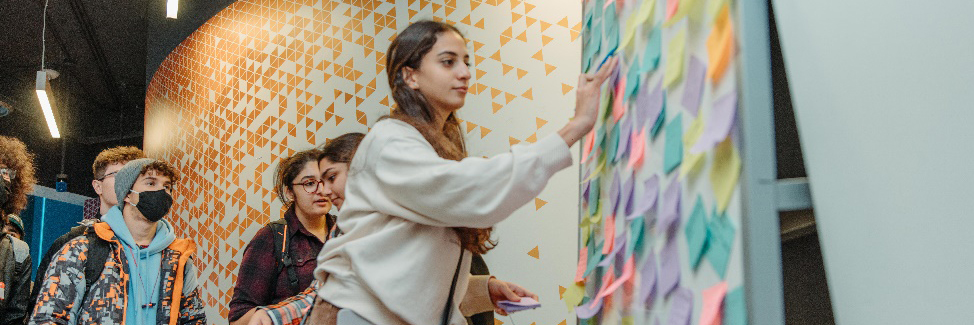
From Nov. 4 to 6, Lassonde’s Bergeron Entrepreneurs in Science and Technology (BEST) Program welcomed more than 450 students from local high-schools, York and undergraduates from nearby post-secondary institutions to UNHack 2022, a three-day immersive learning experience aimed at addressing sustainability challenges related to the 17 United Nations Sustainable Development Goals (UN SDGs).
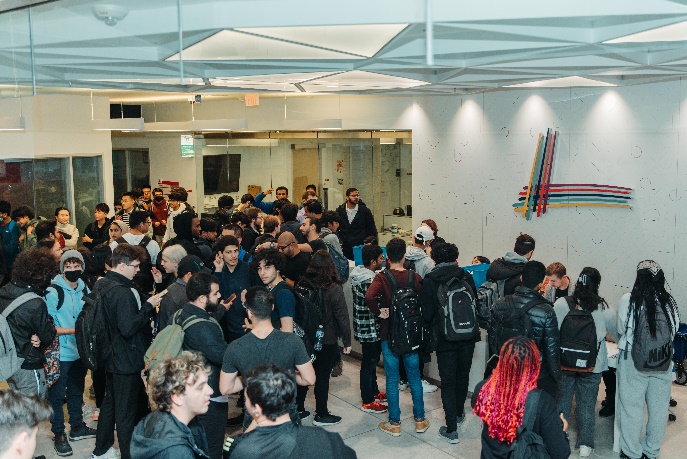
UNHack provided a safe and immersive environment for participants to learn about sustainability challenges in their community, promoted the development of creative ideas and, through teamwork, students strived to design solutions for the UN SDG challenges they identified.
On the first day of UNHack, students met their teammates and dedicated mentors while learning about the principles of the Design Sprint process. They selected the challenge they were passionate about tackling and established roles within their teams. The next day, participants continued their structured learning journey by brainstorming and developing solution designs for the problem they chose to address.
“My biggest takeaway was learning how to apply different methods to solving a problem,” said Jason Lee, a first-year engineering student. “By not focusing immediately on solving the problem at hand and instead understanding why the problem exists, it helped us come up with a better solution.”
UNHack provided students with the unique opportunity to elaborate on their ideas and learn about the different perspectives of their peers while completing a project. Participants were able to develop a variety of skills including resilience, collaboration, leadership, time management, critical thinking, communication and project management.
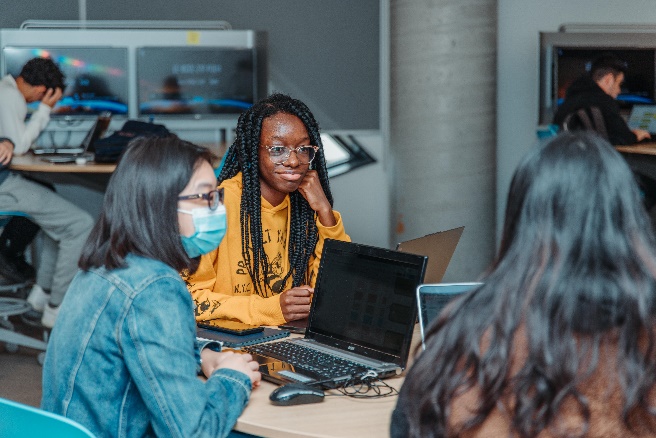
“I learned what it is like to work on a project with a group and how to collaborate with other people,” said first-year engineering student Joshua Lopez. “UNHack showed me how beneficial, efficient and creative solutions can arise when working with a team, which is a vital experience as an engineering student, since many future projects will require me to collaborate with others.”
More than 100 project teams took part in UNHack, with 74 teams making it to the preliminary judging round and 11 teams advancing to the final round. The top teams focused on a range of topics such as road safety, technological services to encourage female students to enter STEM fields and accessible opportunities for sustainable development.
“My biggest takeaway from this experience would have to be the amazing, skilled and smart women and men I have met on this journey, whom I now have the pleasure of calling my friends,” said Nicole Ikhuenbor, first-year engineering student. “The moments we spent at UNHack were invaluable. I was able to face being uncomfortable and embrace my communication and leadership skills. The entire team who orchestrated UNHack was amazing, thank you for this experience, I truly learned so much.”
Winning teams
First place – team #88: O2 (Chen Yu, Alex Pastiu, Ahmed Syed, Shaan Tandon, Alejandro Francis, Mikhail Ajasa). This team addressed UN SDG #6: Clean Water and Sanitation by designing an affordable water distiller/desalinater that can be built using local resources and is easy to set up and maintain, in order to serve the communities who don’t have access to clean drinking water.
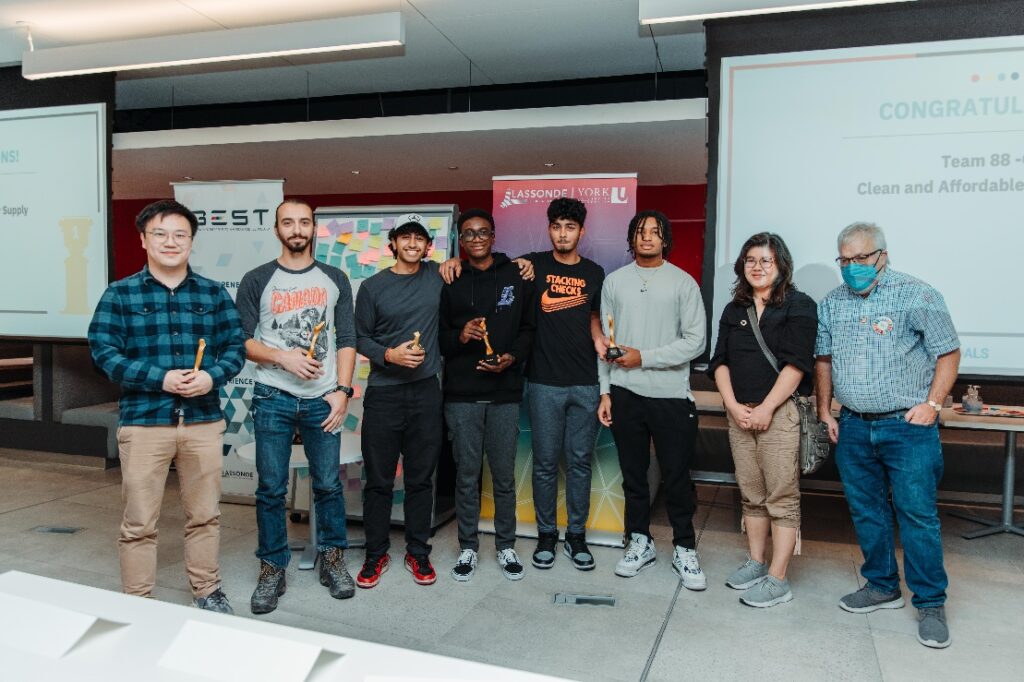
Second place (and People’s Choice Award) – team #5: e-Portfolio (Suyash Singh, Anna Maximova, Heet Narechania, Mohammad Jad Allah, Ummi Hanny, Faiyaz Abdul Aziz, Syed Ali Reza Rizvi). This team addressed UN SDG #4: Quality Education by creating an artificial intelligence (AI) based e-portfolio to support York University students with smart course selection. Their platform aims to make the course selection process easy and eliminate the need to check and recheck the academic calendar, by integrating a comprehensive course directory that can constantly be updated.
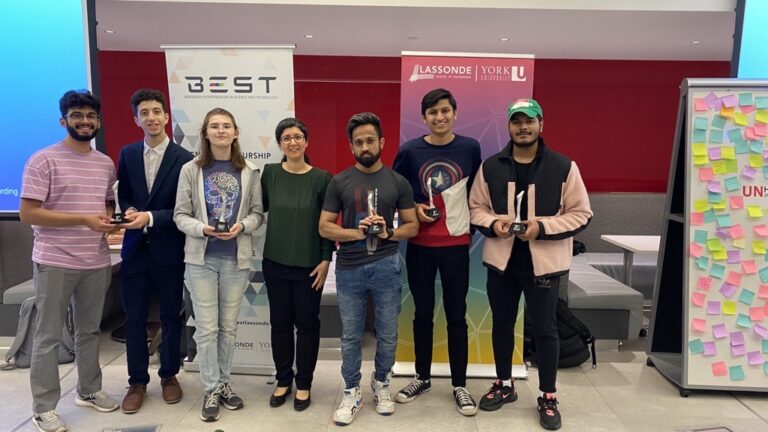
Third place – team #103: Trash to Treasure (Wolfgang Becker, Stavroula Kloutsouniotis, Julia Rodriguez, Amarjeet Gill,). This team addressed UN SDG #11: Sustainable Cities and Communities by creating miniaturized recycling facilities on campus to convert recycled plastic into useful building materials for new construction, art or renovation and promote on-campus recycling.
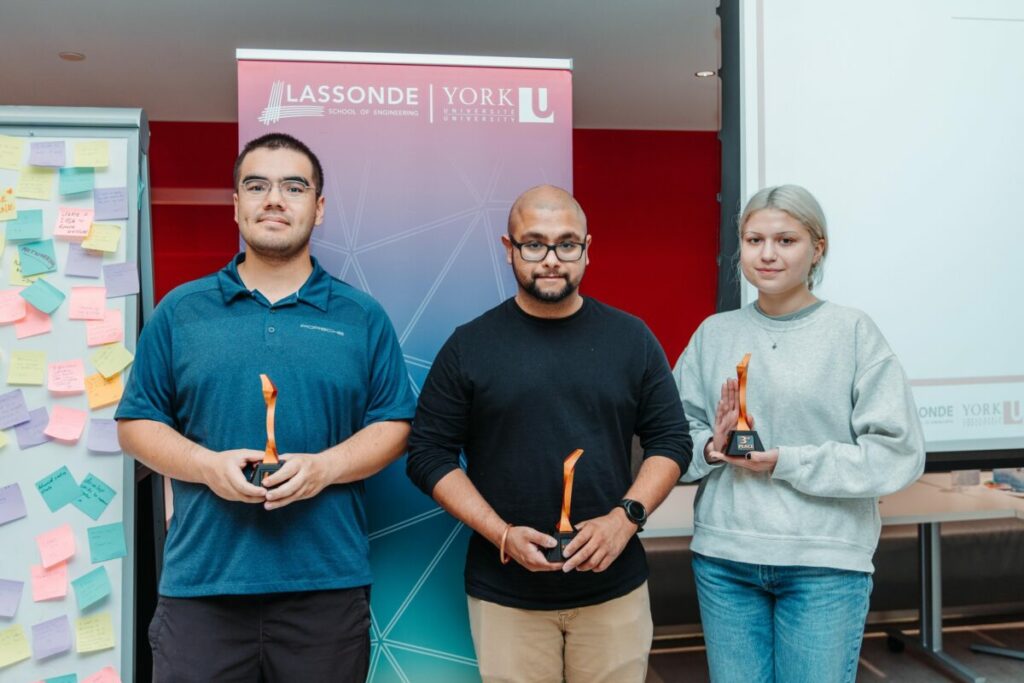
“Unlike traditional hackathons, UNHack focuses on empowering students to feel comfortable with ambiguity and to get out of their comfort zone in order to learn more about themselves, the process of creative problem solving and sustainability projects,” says Maedeh Sedaghat, manager, BEST program. “Students are provided with tools and techniques they can apply to design innovative solutions, make an impact in their community and help make the world a better place.”
UNHack was sponsored by York University (Office of the Vice-President Finance & Administration), Summer Fresh, KPM Power and Scotiabank along with our partners, mentors and moderators.
Lassonde Professor Magdalena Krol, associate dean, Research, Innovation, Enterprise & Partnerships, Faculty of Environmental and Urban Change; Dean Alice Hovorka from the Faculty of Environmental and Urban Change; and Nicole Arsenault, program director, Sustainability, provided opening remarks at UNHack.
The expert judges participating in this year’s event: entrepreneurs Elliot Atkins, Karen Lai, Subashini Kangesan and Keith Loo; Arsenault; and Faculty of Liberal Arts & Professional Studies Associate Professor Jon Kerr.
View more photos from the UNHack on the Lassonde Facebook page.
